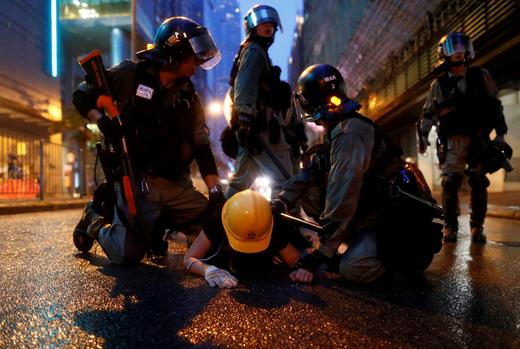Apple Inc on Wednesday removed an app that protestors in Hong Kong have used to track police movements, saying the app violated its rules because it was used to ambush police and by criminals who used it to victimise residents in areas with no law enforcement.
Apple rejected the crowdsourcing app, HKmap.live, earlier this month but then reversed course last week, allowing the app to appear on its App Store.
The approval drew a sharply worded commentary from the Chinese Communist Party’s official newspaper, the People’s Daily, on Tuesday with Apple criticised for allowing a “poisonous” app.
Apple said in a statement that “many concerned customers in Hong Kong” contacted the company about the mapping app. Apple said it immediately began investigating the app’s use and found it “has been used in ways that endanger law enforcement and residents in Hong Kong.”
“The app displays police locations and we have verified with the Hong Kong Cybersecurity and Technology Crime Bureau that the app has been used to target and ambush police, threaten public safety, and criminals have used it to victimise residents in areas where they know there is no law enforcement,” the statement said.
Apple did not comment beyond its statement, and the app’s developer did not immediately have a comment on the removal.
Under Apple’s rules and policies, apps that meet its standards to appear in the App Store have sometimes been removed after their release if they were found to facilitate illegal activity or threaten public safety.
In 2011, Apple modified its app store to remove apps that listed locations for drunken driving checkpoints not previously published by law enforcement officials.
Asked for comment after the People’s Daily piece was published, HKmap.live’s developer, who has not revealed his or her identity, said the app merely consolidated information that was available in the public domain, such as groups on Telegram, another service protesters were using to communicate.
“Protest is part of our freedom of speech (sic) and I don’t think the application is illegal in HK,” the developer told Reuters in a direct message on Tuesday.






